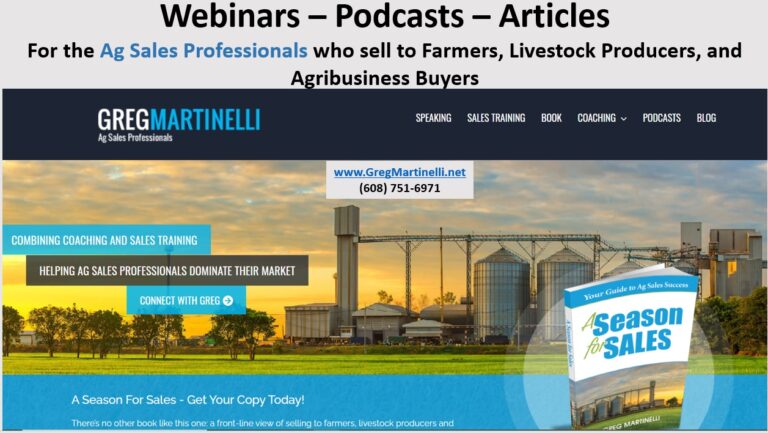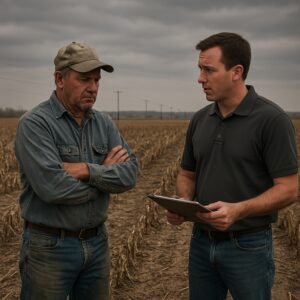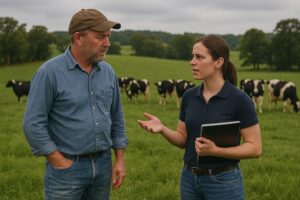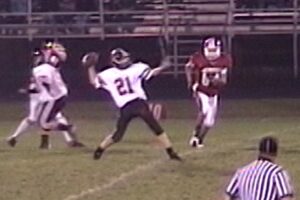I don’t believe it anymore
Have you ever heard someone described as a “Born Salesperson?”
Yeah, me too. Prior to going into sales, I believed it. After decades in sales, I don’t believe it for one minute. Sure, I think people are naturally better at communicating, understanding the small intricacies of verbal/non-verbal communication, or networking their way in life. And sure, this might make it easier for that person to sell. However, knowing a lot of people or having the gift of gab doesn’t translate into sales unless you do something with that gift.
The reason for this blog is to help you understand that you can have a great career in sales, even if you feel like you weren’t born a salesperson. However, you might be holding yourself back because you are under the false impression that top performing sales people were “born to sell”. Kind of like “Born to ride” but with a pen, an I-pad, a Chevy Impala, and no Harley.
Don’t believe it: Please don’t believe that you need to have some genetic makeup to be a salesperson. I believed this myth when I got into agribusiness. I saw what salespeople did and how smooth they made the complicated sales process look. I decided I could never do that. How could I, when I didn’t even come from a farming background?
Never fear. There’s hope for a bright & fun future in sales. If and only if, you are willing to put in the work.
Why is agribusiness “bright”? First, people will never stop eating. Second, the population is growing every day and so is protein consumption. So, there’s really good demand, despite some tough times right now. This strong demand is what I call “Career Security”. By that, I mean jobs will come and go, but your career of marketing products so producers can grow crops and raise production animals is going to last a long time.
Secondly, ag products and ag sales are getting more complicated. Precision ag for crop farming and understanding digestible nutrient flows in animals requires more technology. All this is good for salespeople. Why? Because complicated means it needs someone to explain it and how to implement it, which is a key role for an Ag Sales Professional. In summary, there’s lots of career security.
Why is it “Fun”? As a salesperson, you have the one unique role in the company that brings all your companies’ resources to the customer. To do that, you get the opportunity to learn all about your company and your customer’s industry. To be effective, you have to know all aspects of what your company offers and how they help your customer. Sure, managers and leaders need to know a lot about the company they manage or lead. But they most likely don’t know as much about how to bring it to the customer. That’s the unique, satisfying and fun role of the salesperson.
Why did you have to say, “If and only if, you are willing to put in the work”? That doesn’t sound like so much fun. Maybe not, but the result of that work is really fun.
Here’s my point. Sales is work, just like anything else. I keep coming back to this theme. See the recent blog: Sales Killer #3 – MUNDANE
TV and movies might show a salesperson using catchy phrases and gimmicky style closes that help “Sell ice to Eskimos”. But selling in Agribusiness really doesn’t accommodate those techniques. We tend to sell a customer for a long time. Sometimes for an entire career. So, using a technique to get our customers to buy something they don’t need is a very short-sighted approach. Secondly, it’s a very small world and word travels fast. You will soon run out of buyers if you have a reputation for selling customers products they don’t need.
The part you won’t see on TV is all the background work that goes into understanding your selling skills, your company strengths, and your competition’s weaknesses, and most importantly, all the hard work of bringing that information to help your customer.
Here are a few examples of learnable skills that require hard work versus being born to sell:
- Listening Skills: It’s much easier to talk and present than it is to ask questions and listen. However, we can all learn how to prepare good questions and then listen as our customer answers.
- Planning: There’s no planning gene. Just people who do it and those that don’t. Customers are busy. They want you to have a purpose and get to it in a reasonable amount of time.
- Following Up – Doing what you said you would. In a busy world, more sales are lost because salespeople fail to follow up on details to complete the sale. Remember, you are only one out of maybe a dozen salespeople a farmer meets with. Nothing personal, but you’re forgettable unless you follow up.
- Honesty and Integrity: Maybe these are born in us a little. But, we can certainly learn these or avoid their opposite. In Purdue’s Large Producer study, being honest was the number one characteristic the large producers wanted in their salesperson.
So, if you previously considered a sales career and decided against it, please take another look. While certain selling skills might come more natural for some people, everything needed to be successful in a sales territory can be learned. Take it from someone who started his ag career with a poorly weeded vegetable garden in the backyard.
I want to thank my inspiration for this article. I had the idea for this article for some time now, but never finished it. At a recent training session this week, we were going over DISC assessments, which you truly are born with. As I wrapped up, one sharp individual asked if one DISC Profile was better for salespeople to have than another. In my opinion and the opinion of my DISC sources, there truly is not a better profile for sales. Certain profiles have strength areas that help them do better in certain areas: The high D (Dominance) gets a lot done. The high C (Conscientious) excels in analyzing technical data and being organized. The high I (Influence) thrives at networking and shooting for big goals. The high S (Steadiness) for being tolerant of the rest of us in the world.
However, any one of them can be successful in sales. The important component to understand about DISC for selling is to understand your customer’s profile. Sell basis their DISC style and their desires.




